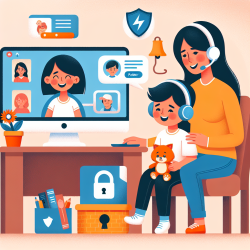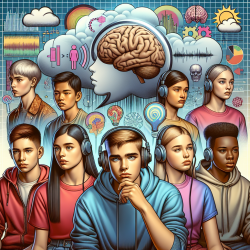The COVID-19 pandemic has accelerated the adoption of teleconsultation across various medical fields, including oncology. A recent qualitative study titled A qualitative study of teleconsultation practices among French oncologists in a post-COVID-19 period provides valuable insights that can be applied to the field of special education, particularly for practitioners involved in online therapy services.
Key Findings and Their Application to Special Education
Here are some of the critical outcomes from the study and how they can be implemented to improve teleconsultation practices in special education:
- Seamless Integration: The study emphasizes the importance of seamlessly incorporating teleconsultation into patient care. For special education, this means ensuring that online therapy sessions are a natural extension of the student's educational plan.
- Reduced Inconvenience: Teleconsultation reduces the inconvenience for patients, providing economic and environmental benefits. Similarly, online therapy can minimize travel time for both students and therapists, making sessions more accessible.
- Technical Barriers: The primary barrier to effective teleconsultation is technical issues. Special education practitioners should ensure robust technical support and training for both staff and students to minimize disruptions.
- Patient Preferences: Considering patient preferences is crucial. In special education, this translates to understanding the unique needs and comfort levels of each student when using online platforms.
Practical Recommendations
Based on the study's findings, here are some practical recommendations for enhancing teleconsultation practices in special education:
- Technical Infrastructure: Ensure reliable internet connectivity and adequate equipment for both therapists and students. This includes high-quality cameras and microphones.
- Training: Provide comprehensive training for therapists on how to effectively use teleconsultation tools. This should also include training for students and their families.
- Integration: Integrate teleconsultation into the regular workflow. Schedule regular online therapy sessions and ensure they are part of the student's Individualized Education Plan (IEP).
- Feedback Mechanism: Establish a feedback mechanism to continually assess and improve the teleconsultation process. This can include surveys for both therapists and students.
Encouraging Further Research
While the study provides a robust framework for teleconsultation, further research is encouraged to adapt these findings specifically for special education. Practitioners should consider conducting their own studies to evaluate the effectiveness of teleconsultation in their specific context.
To read the original research paper, please follow this link: A qualitative study of teleconsultation practices among French oncologists in a post-COVID-19 period.










